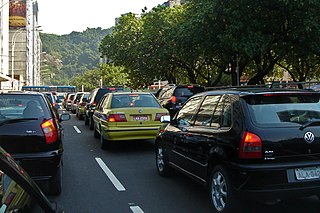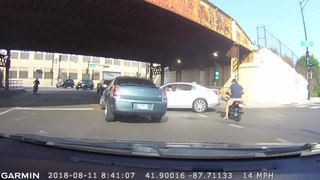Related Research Articles

An assault is the act of inflicting physical harm or unwanted physical contact upon a person or, in some specific legal definitions, a threat or attempt to commit such an action. It is both a crime and a tort and, therefore, may result in criminal prosecution, civil liability, or both. Generally, the common law definition is the same in criminal and tort law.
Negligence is a failure to exercise appropriate and/or ethical ruled care expected to be exercised amongst specified circumstances. The area of tort law known as negligence involves harm caused by failing to act as a form of carelessness possibly with extenuating circumstances. The core concept of negligence is that people should exercise reasonable care in their actions, by taking account of the potential harm that they might foreseeably cause to other people or property.
Defamation is the oral or written communication of a false statement about another that unjustly harms their reputation and usually constitutes a tort or crime. In several countries, a true statement can also be considered defamation.
A tort is a civil wrong that causes a claimant to suffer loss or harm, resulting in legal liability for the person who commits the tortious act. In some, but not all, civil and mixed law jurisdictions, the term delict is used to refer to this category of civil wrong, though it can also refer to criminal offences in some jurisdictions and tort is the general term used in comparative law. The word tort stems from Old French via the Norman Conquest and Latin via the Roman Empire. The word 'tort' was first used in a legal context in the 1580s, although different words were used for similar concepts prior to this time.
In law, standing or locus standi is a condition that a party seeking a legal remedy must show they have, by demonstrating to the court, sufficient connection to and harm from the law or action challenged to support that party's participation in the case. A party has standing in the following situations:

Collateral damage is any death, injury, or other damage inflicted that is an incidental result of an activity. Originally coined by military operations, it is now also used in non-military contexts.

A riot is a form of civil disorder commonly characterized by a group lashing out in a violent public disturbance against authority, property, or people.
Delict is a term in civil and mixed law jurisdictions whose exact meaning varies from jurisdiction to jurisdiction but is always centred on the notion of wrongful conduct.
Intimidation is intentional behavior that would cause a person of reasonable apprehension to fear injury or harm. It is not necessary to prove that the behavior caused the victim to experience terror or panic.

Road rage is aggressive or angry behavior exhibited by motorists. These behaviors include rude and verbal insults, yelling, physical threats or dangerous driving methods targeted at other drivers, pedestrians or cyclists in an effort to intimidate or release frustration. Road rage can lead to altercations, damage to property, assaults and collisions that result in serious physical injuries or even death. Strategies include long horn honks, swerving, tailgating, brake checking and attempting to fight.

Delict in Scots Law is the area of law concerned with those civil wrongs which are actionable before the Scottish courts. The Scots use of the term 'delict' is consistent with the jurisdiction's connection with Civilian jurisprudence; Scots private law has a 'mixed' character, blending together elements borrowed from Civil law and Common law, as well as indigenous Scottish developments. The term tort law, or 'law of torts', is used in Anglo-American jurisdictions to describe the area of law in those systems. Unlike in a system of torts, the Scots law of delict operates on broad principles of liability for wrongdoing: 'there is no such thing as an exhaustive list of named delicts in the law of Scotland. If the conduct complained of appears to be wrongful, the law of Scotland will afford a remedy even if there has not been any previous instance of a remedy being given in similar circumstances'. While some terms such as assault and defamation are used in systems of tort law, their technical meanings differ in Scottish delict.

English tort law concerns the compensation for harm to people's rights to health and safety, a clean environment, property, their economic interests, or their reputations. A "tort" is a wrong in civil, rather than criminal law, that usually requires a payment of money to make up for damage that is caused. Alongside contracts and unjust enrichment, tort law is usually seen as forming one of the three main pillars of the law of obligations.
In criminal law and in the law of tort, recklessness may be defined as the state of mind where a person deliberately and unjustifiably pursues a course of action while consciously disregarding any risks flowing from such action. Recklessness is less culpable than malice, but is more blameworthy than carelessness.
In English law, remoteness between a cause of action and the loss or damage sustained as a result is addressed through a set of rules in both tort and contract, which limit the amount of compensatory damages available for a wrong.
A rodef, in traditional Jewish law, is one who is "pursuing" another to murder him or her. According to Jewish law, such a person must be killed by any bystander after being warned to stop and refusing. A source for this law appears in the Babylonian Talmud:
And these are the ones whom one must save even with their lives [i. e., killing the wrongdoer]: one who pursues his fellow to kill him [rodef achar chavero le-horgo], and after a male or a betrothed maiden [to rape them]; but one who pursues an animal, or desecrates the Sabbath, or commits idolatry are not saved with their lives.
Title VIII: Strengthening the criminal laws against terrorism is the eighth of ten titles which comprise the USA PATRIOT Act, an anti-terrorism bill passed in the United States one month after the September 11, 2001 attacks. Title VIII contains 17 sections and creates definitions of terrorism, and establishes or re-defines rules with which to deal with it.
Malicious falsehood or injurious falsehood is a tort. It is a lie that was uttered with malice, that is, the utterer knew it was false or would cause damage or harm.

Criminal damage in English law was originally a common law offence. The offence was largely concerned with the protection of dwellings and the food supply, and few sanctions were imposed for damaging personal property. Liability was originally restricted to the payment of damages by way of compensation.

In traffic laws, a hit and run or a hit-and-run is the act of causing a traffic collision and not stopping afterwards. It is considered a supplemental crime in most jurisdictions.

The Sheriff Personal Injury Court is a Scottish court with exclusive competence over claims relating to personal injury where the case is for a work-related accident claim in excess of £1,000, where the total amount claimed is in excess of £5,000, or where a sheriff in a local sheriff court remits proceedings to the Personal Injury Court. It has concurrent jurisdiction with the Court of Session for all claims in excess of £100,000, and concurrent jurisdiction with the local sheriff courts for personal injury claims within its competence.
References
- ↑ The Defamation Act 1952, section 3 (as substituted by section 14(b) of that Act)